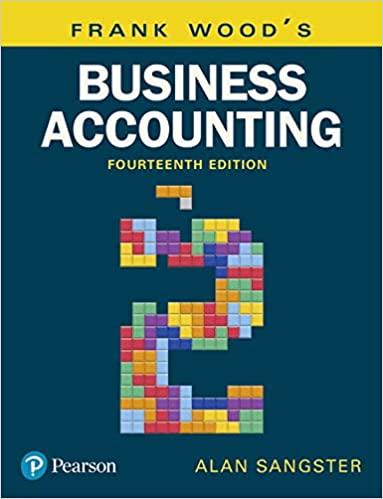Question
Innis Investments manages funds for a number of companies and wealthy clients. The investment strategy is tailored to each client's needs. For a new client,
Innis Investments manages funds for a number of companies and wealthy clients. The investment strategy is tailored to each client's needs.
For a new client, Innis has been authorized to invest up to $1.2 million in two investment funds: a stock fund and a money market fund. Each unit of the stock fund costs $50 and provides an annual rate of return of 10%; each unit of the money market fund costs $100 and provides an annual rate of return of 4%.
The client wants to minimize risk subject to the requirement that the annual income from the investment be at least $60,000.
According to Innis' risk measurement system, each unit invested in the stock fund has a risk index of 8, and each unit invested in the money market fund has a risk index of 3. The higher risk index associated with the stock fund simply indicates that it is the riskier investment.
Innis's client also specified that at least $300,000 be invested in the money market fund.
Refer to the computer solution shown below.
Optimal Objective Value = 62000.00000
VariableValueReduced CostS4000.000000.00000M10000.000000.00000ConstraintSlack/SurplusDual Value10.000000.0566720.000002.1666737000.000000.00000VariableObjective CoefficientAllowable IncreaseAllowable DecreaseS8.00000Infinite4.25000M3.000003.40000InfiniteConstraintRHS ValueAllowable IncreaseAllowable Decrease11200000.00000300000.00000420000.00000260000.0000042000.0000012000.0000033000.000007000.00000Infinite(a)
Suppose the risk index for the stock fund (the value of
CS)
increases from its current value of 8 to 14. How does the optimal solution change, if at all?
The optimal solution becomes (9600, 3000).The optimal solution does not change.
(b)
Suppose the risk index for the money market fund (the value of
CM)
increases from its current value of 3 to 4.5. How does the optimal solution change, if at all?
The optimal solution becomes (9600, 3000).The optimal solution does not change.
(c)
Suppose
CS
increases to 14 and
CM
increases to 4.5. How does the optimal solution change, if at all?
The optimal solution becomes (9600, 3000).The optimal solution does not change. 

Step by Step Solution
There are 3 Steps involved in it
Step: 1

Get Instant Access to Expert-Tailored Solutions
See step-by-step solutions with expert insights and AI powered tools for academic success
Step: 2

Step: 3

Ace Your Homework with AI
Get the answers you need in no time with our AI-driven, step-by-step assistance
Get Started


